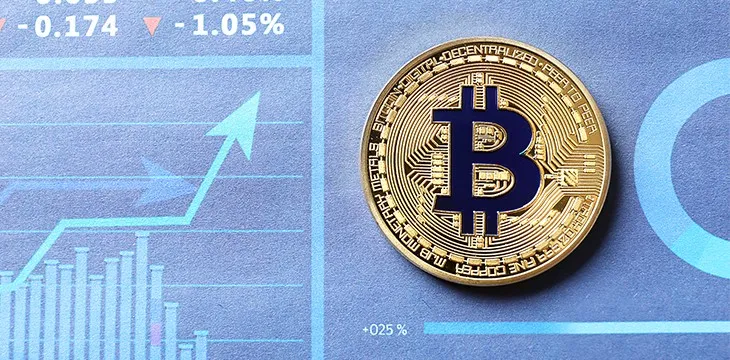|
Getting your Trinity Audio player ready...
|
The Bitcoin SV (BSV) network recently experienced its halving, the cut in half of the block reward diminishing subsidy for transaction processors (so called “miners”).
However, there is a reason why Bitcoin SV will overcome halvings way better than BTC and BCH. It has to do with what economic activity really is.
Understanding the flawed ‘business model’ of BTC and BCH
In BTC and BCH, transaction processors are out there doing their work solely to get block rewards. They cannot even be called transaction processors but instead are just “block reward miners.” For them, it is not about processing transactions at all, as nobody is using their networks to transact anyways.
BTC is primarily “used” to “hodl” coins on shady exchange servers. Decaying coins on gambling platforms are not “used” in the Bitcoin sense though, as whatever one does on a digital currency exchange is not a transaction on the Bitcoin network. BTC is not set up for high transactional volume, therefore their “miners” have to rely on block rewards.
BCH is about creating non-traceable, fully anonymous and therefore darknet/terrorist offline cash. As no jurisdiction on earth would ever allow such a criminal coin to ever be used in a broad sense, it is safe to say there will never—never, never, never!—be serious transactional volume on BCH.
Why are BTC and BCH bound to run into problems?
Economy is about generating profit by serving others. It is not about profiting by serving yourself. Earning block rewards is solely a self-serving activity. Only processing transactions on the Bitcoin network is about serving others.
BTC and BCH “miners” get the block rewards and try to sell it off to people who hope that these coins will be worth more later on. That is not an economy, as the demand from BTC and BCH “speculators” is not genuinely economic driven, it is driven by the “crypto cartel’s” deception that one always finds a greater fool to buy the coins for more at another point in time. It is not an economy, it is essentially Ponzi scheme, and is akin to theft or fraud.
An economy is not primarily about creating goods (such as block rewards) and services—it is foremost about producing goods and services for others!
Bitcoin SV dedicated transaction processors will profit by processing transactions for others, so they profit by serving others. That is an economy.
Bitcoin SV is about work (=transacting) for others, not solely for oneself
Let us have a look at what work is. Work can be done without serving others.
You may dig a hole in the ground as long as you want, and that indeed is work, but does it serve others? If you yourself need this hole in the ground for your own purposes, it is work for yourself. That is not an economic activity though, as the counterpart is missing. You are not the counterpart. Others are.
Work does not equal economic activity.
Dig a hole in the ground for others and get paid by them, because they need that hole? That is an economic activity. It is a transaction. Economy is comprised of transactions between humans.
Block reward mining is not between humans, it is between the “miners” and the Bitcoin network. The Bitcoin network is not a human, therefore getting a block reward is not an economical transaction. It is pure code and computation. So block reward mining in itself is not an economic activity.
Bitcoin is about transactions, which is economic activity
Bitcoin SV dedicated transaction processors are building their business model long term to process transactions, which serve others. That essentially means that Bitcoin SV is out there to create an ecosystem, an economy, while BTC and BCH are just working for themselves, which will eventually be futile.
With this, it is easy to understand why Bitcoin SV went back to the original Bitcoin whitepaper incentive system and infrastructure that allow unlimited scaling and low cost transactions.
Bitcoin is transactions. Transactions are economy. So Bitcoin is economy.
Halvings do not threaten Bitcoin SV, but eradicate BTC and BCH
BTC and BCH will die off by their halvings. Period. They were not out there to let transactions be the center of Bitcoin, but to make “quick bucks” by mining block rewards and that was that.
The block reward system can be understood as a way to bootstrap the network in the early days. These early days are over though.
For a Bitcoin economy to last, it is necessary to actually profit by serving others in the Bitcoin network. By transactions alone. This is exactly where Bitcoin SV is heading with its infrastructure for astronomically high transactional volume.
The Bitcoin protocol defined halvings will eventually either push transaction processors and users into a true economy or let Bitcoin die off as a whole. It really comes down to these two options: create an economy or die!

 07-02-2025
07-02-2025 





